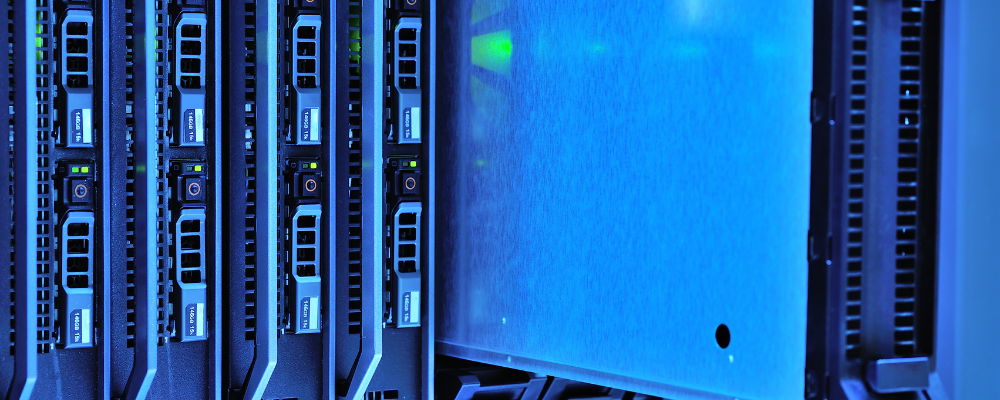
Your infrastructure can’t afford guesswork. In Israel’s high-stakes business environment - where milliseconds matter and downtime can cost millions - colocation has become the backbone for banks, defense systems, hospitals, and the country’s biggest tech players.
But what exactly should you know before moving your servers into someone else’s data center? We’ve gathered the 10 most asked questions in Israel - with clear, straight-to-the-point answers to help you choose right.
1. What is colocation and how is it different from hosting or cloud?
Colocation means you place your own servers and IT equipment in a third-party data center, while maintaining full ownership and control. The provider supplies space, power, cooling, security, and connectivity.
Unlike traditional hosting, you’re not renting the hardware - it’s yours. And unlike public cloud, colocation keeps your workloads on dedicated physical infrastructure, often with lower latency and predictable costs.
MedOne operates carrier-neutral underground data centers in Israel, giving you the control of on-premises infrastructure with the resilience and scale of enterprise facilities.
2. How much does colocation cost in Israel per rack or per unit?
Pricing depends on rack size, power density, bandwidth needs, and service level agreements. In Israel, a standard 42U rack in a Tier III-equivalent facility can range from several thousand to tens of thousands of shekels per month.
MedOne offers flexible contracts - from single rack units to dedicated cages - so you only pay for the capacity you use, with transparent power and connectivity charges.
3. Which are the leading colocation providers in Israel and how do they compare?
The market is relatively small but highly specialized, with a few key players serving the country’s critical infrastructure. MedOne stands out for its 25,000 sqm of secure underground space, direct access to submarine cable landing stations, and seven new sites in development.
This scale, combined with carrier neutrality, positions MedOne as the go-to choice for financial institutions, government, defense, and high-tech sectors.
4. What kind of connectivity options are available at a colocation facility in Israel?
A top-tier colocation site should offer multiple ISPs, dark fiber, direct cloud interconnects, and Internet Exchange access.
MedOne’s facilities connect directly to Israel’s national fiber backbone and to all major local and international carriers, enabling low-latency links to AWS, Azure, Google Cloud, and other hyperscale environments.
5. How secure are colocation data centers in Israel against cyber threats and physical attacks?
Security is layered - physical access controls, biometric authentication, 24/7 monitoring, and network-level protections.
MedOne’s underground design adds another layer, shielding infrastructure from environmental risks and providing enhanced physical resilience. All facilities meet stringent Israeli security regulations and international best practices.
6. What certifications should an Israeli colocation provider have (ISO, GDPR, Tier levels)?
Look for ISO 27001 for information security, ISO 22301 for business continuity, ISO 9001 for quality, GDPR compliance, and Uptime Institute Tier certifications or equivalent.
MedOne holds multiple ISO certifications, complies with GDPR, and operates to Tier III-equivalent standards with 99.99% uptime guarantees.
7. Can I connect my colocation environment directly to global cloud providers like AWS, Azure, and Google Cloud?
Yes - if the data center has cloud on-ramps or partnerships with network providers offering these services.
MedOne enables direct, private, and secure connections to global clouds, allowing hybrid architectures that keep sensitive workloads in colocation while leveraging public cloud for elasticity.
8. What redundancy and uptime guarantees do Israeli colocation facilities offer?
Look for N+1 or 2N redundancy in power and cooling, diverse network paths, and service level agreements that guarantee uptime.
MedOne’s design delivers 99.99% availability, backed by redundant UPS, generators, cooling systems, and multiple fiber entry points.
9. Is there an advantage to choosing an underground data center for colocation in Israel?
Absolutely. Underground facilities offer superior protection from environmental threats, temperature fluctuations, and physical intrusion attempts. In Israel’s unique geopolitical and environmental context, this adds significant resilience.
MedOne’s underground sites have proven operational continuity during national emergencies, making them the safest choice for critical workloads.
10. How quickly can I deploy and scale infrastructure in a colocation site in Israel?
Deployment timelines vary, but a well-prepared provider can have your infrastructure operational in days rather than months.
MedOne offers rapid provisioning, remote hands support, and scalable capacity so you can expand without disrupting operations.
Bottom line:
Colocation in Israel is about more than renting rack space - it’s about partnering with a provider that delivers security, connectivity, scalability, and proven resilience. MedOne combines underground protection, carrier neutrality, and direct cloud access to give your infrastructure the strongest foundation possible
